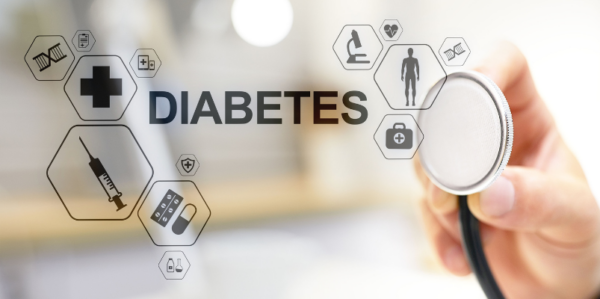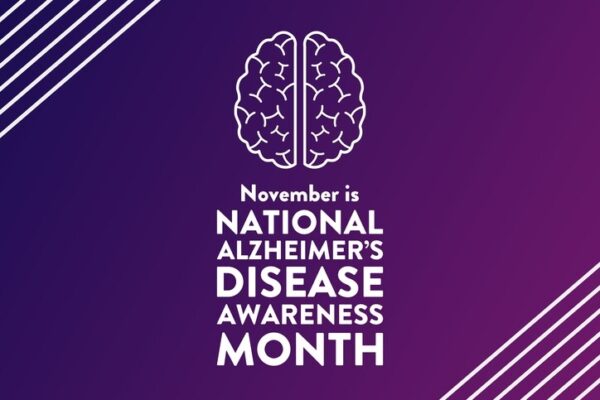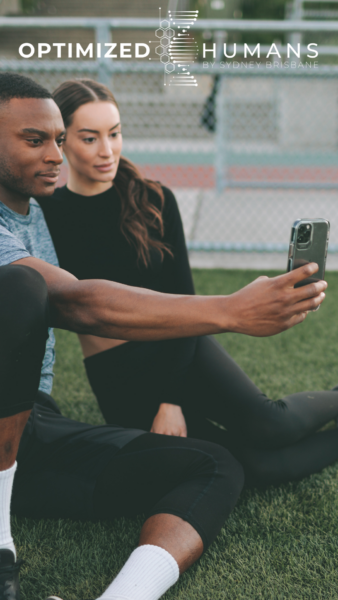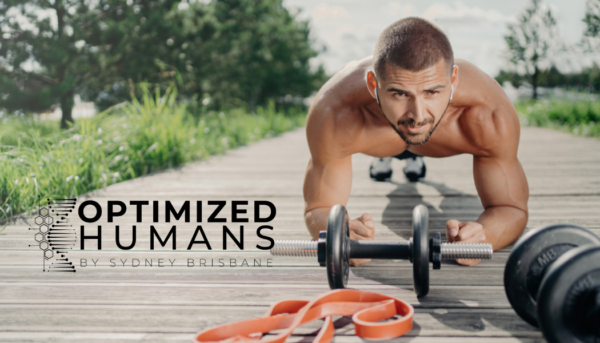Introduction
For individuals managing diabetes, the holiday season can be a tricky time. With sweet treats, family feasts, and festive drinks around every corner, it’s easy to feel overwhelmed. This blog shares practical strategies to enjoy the holidays while keeping blood sugar levels in check.
The Holiday Challenge for Diabetes Management
The abundance of high-carb and high-sugar foods during the holidays can lead to blood sugar spikes, making it harder to manage diabetes. However, with a bit of planning and mindfulness, you can indulge while staying on track with your health goals.
Tips for Managing Diabetes During the Holidays
- Plan Your Meals: Stick to your meal plan as closely as possible. If you’re attending a party, have a balanced snack beforehand.
- Portion Control: Savor small portions of your favorite holiday dishes instead of overloading your plate.
- Stay Hydrated: Drinking water can help stabilize blood sugar levels and curb overeating.
- Monitor Blood Sugar: Keep track of your levels more frequently during this period to make necessary adjustments.
Closing Thoughts
The holidays should be a time of joy and connection, not stress about your health. With the right strategies, you can navigate the season confidently while keeping your diabetes well-managed.
LETS GET HEALTHY TOGETHER: Join Optimized Humans to access tailored meal plans and fitness routines that support your health goals. Use code NEWYEARS25 for a discount on your subscription.
November is National Alzheimer’s Disease Awareness Month, a time to focus on one of the most prevalent and devastating conditions affecting millions of people worldwide. Alzheimer’s disease is a progressive neurological disorder that impairs memory, thinking, and behavior. Raising awareness about this condition is crucial in helping people understand its effects, prevention strategies, and the steps we can take to support brain health throughout life.
In this post, we’ll explore what Alzheimer’s disease is, its risk factors, the importance of early detection, how lifestyle choices like exercise and nutrition can help lower the risk, and some key statistics to help raise awareness.
What is Alzheimer’s Disease?
Alzheimer’s disease is the most common form of dementia, accounting for about 60-80% of dementia cases. It’s a degenerative condition that primarily affects memory, thinking skills, and behavior. As the disease progresses, it interferes with a person’s ability to carry out even the simplest tasks, eventually leading to complete dependency on others for care. Alzheimer’s is a fatal condition with no cure, but early detection and proper care can slow its progression and improve quality of life.
The disease typically affects people over the age of 65, although early-onset Alzheimer’s can appear in people as young as 40 or 50. It’s characterized by the buildup of amyloid plaques and tau tangles in the brain, leading to the loss of connections between neurons, the brain’s cells. Over time, this damage results in cognitive decline and the shrinking of brain tissue.
Risk Factors and Early Signs
Alzheimer’s disease develops due to a combination of genetic, environmental, and lifestyle factors. Here are some key risk factors:
- Age: The greatest known risk factor for Alzheimer’s is age, with the majority of cases occurring in individuals over 65.
- Family History: Those with a parent, sibling, or child with Alzheimer’s are more likely to develop the disease.
- Genetics: Certain genes, such as the APOE-e4 gene, are associated with a higher risk of developing Alzheimer’s.
- Chronic Conditions: Conditions like heart disease, diabetes, and high blood pressure can increase the risk of Alzheimer’s by affecting the health of blood vessels that nourish the brain.
- Lifestyle Factors: Lack of physical activity, poor diet, and chronic stress have all been linked to an increased risk of cognitive decline and Alzheimer’s.
Early signs of Alzheimer’s often include memory loss, difficulty completing familiar tasks, trouble with language, and confusion about time or place. It’s important to recognize these signs early and seek medical evaluation, as early intervention can make a significant difference in managing the condition.
How a Healthy Lifestyle Can Help Lower the Risk
While there is no definitive way to prevent Alzheimer’s, research suggests that certain lifestyle factors may reduce the risk or delay the onset of the disease. Maintaining a healthy brain is closely tied to keeping the heart, body, and mind in good shape. Here are some ways to support brain health and lower your risk of Alzheimer’s:
- Regular Exercise: Physical activity increases blood flow to the brain and supports the growth of new brain cells. It also reduces the risk of chronic diseases that contribute to Alzheimer’s, such as heart disease and diabetes. Studies have shown that regular aerobic exercise, like walking, swimming, or cycling, can help improve memory and cognitive function.
- Healthy Diet: A brain-healthy diet is rich in fruits, vegetables, whole grains, and healthy fats. The Mediterranean and DASH diets are particularly beneficial, emphasizing foods like leafy greens, berries, nuts, fish, and olive oil. These diets have been shown to improve cognitive function and reduce the risk of Alzheimer’s by providing essential nutrients that protect brain cells.
- Mental Stimulation: Keeping the brain active is crucial for cognitive health. Engaging in mentally stimulating activities, such as puzzles, reading, learning new skills, or playing strategy games, can strengthen brain function and help build a cognitive reserve that may delay the onset of Alzheimer’s symptoms.
- Social Engagement: Maintaining social connections is important for brain health. Isolation and loneliness can increase the risk of cognitive decline, while staying socially active with friends, family, and community activities can improve mental and emotional well-being.
- Adequate Sleep: Poor sleep, especially chronic sleep deprivation, has been linked to an increased risk of Alzheimer’s. Sleep is essential for clearing toxins from the brain that accumulate during the day, including amyloid, a protein linked to Alzheimer’s.
- Stress Management: Chronic stress can accelerate cognitive decline. Techniques such as mindfulness, meditation, yoga, and relaxation exercises can help manage stress and promote a healthy mind.
Alzheimer’s Disease Awareness: Key Statistics
The impact of Alzheimer’s disease is widespread, affecting not only those diagnosed but also their families and caregivers. Here are some key statistics to raise awareness about Alzheimer’s:
- According to the Alzheimer’s Association, more than 6 million Americans are living with Alzheimer’s disease, and this number is expected to reach nearly 13 million by 2050.
- One in three seniors dies with Alzheimer’s or another form of dementia, making it a leading cause of death among older adults.
- Women are disproportionately affected, making up nearly two-thirds of Americans with Alzheimer’s. Women are also more likely to be caregivers for someone with the disease.
- Alzheimer’s and other dementias will cost the U.S. $355 billion in 2021, and this figure could rise to over $1.1 trillion by 2050 as the population ages.
- African Americans and Hispanics are at a higher risk of Alzheimer’s, with African Americans being twice as likely and Hispanics one and a half times as likely to develop the disease compared to non-Hispanic whites.
These statistics highlight the urgent need for increased awareness, research funding, and support for those affected by Alzheimer’s.
Final Thoughts: Raising Awareness and Taking Action
National Alzheimer’s Disease Awareness Month is an opportunity for all of us to learn more about this devastating condition, support research, and encourage healthier lifestyle choices that can lower the risk of Alzheimer’s. By staying active, eating well, and keeping your mind and heart healthy, you can reduce your risk of cognitive decline and take proactive steps toward preserving your brain health.
While there’s no cure for Alzheimer’s yet, advances in research and a greater understanding of the disease give hope for the future. As we raise awareness this month, remember that small lifestyle changes can make a big difference.
Looking for guidance on how to stay physically and mentally healthy? Join Optimized Humans today to gain access to personalized workout plans, nutrition advice, and ongoing support for your health journey. Use the code ALZHEIMERSAWARE for an exclusive discount on your subscription. Let us help you optimize your body and mind for a healthier, more vibrant life.
Hello Optimized Humans! My name is Sydney Brisbane your Optimal Wellness Specialist and I have dedicated most of my life to helping people like you maximize their human potential through personalised workouts, meal plans, and curated schedules to hit their lifestyle goals. I do this via my app, it offers a comprehensive range of features to help you achieve your wellness goals. Whether you’re looking to improve your fitness, nutrition, or overall well-being, this user’s guide will provide you with a detailed walkthrough on how to maximize the value of your Optimized Humans subscription.
Getting Started
- Contact Me
-
- Send me an email sydney@optimizedhumans.life requesting a discovery call.
- Message me on any social media platform with your name, phone number, or email address.
- I will send you a unique link dedicated to your profile
- Last you can download the app on either store IOS or Android. Then send me a email or direct message, so I can build and link your profile.
- Download and Install the App:
- Available on both iOS and Android platforms, download the Optimized Humans app from the App Store or Google Play.
- Open the app and sign up using your email address or social media account.
- Profile Setup:
- Complete your profile by entering your personal information, fitness goals, and current fitness level. This will help the app tailor its recommendations to your specific needs.
- Complete your waivers and questionnaire so that I can create the best workout for you experience level and needs.
- Set your preferences for workout types, dietary restrictions, and any other relevant details.
Navigating the Dashboard
The dashboard is your home screen, providing a quick overview of your daily activities, progress, and personalized recommendations.
- Daily Summary:
- View a snapshot of your daily stats, including steps taken, calories burned, and active minutes.
- Access your workout schedule and meal plan for the day.
- Progress Tracking:
- Track your fitness progress over time with charts and graphs. Monitor your weight, body measurements, hear rate, calorie intake, calorie expenditure, and performance improvements.
Personalized Workout Plans
One of the standout features of the Optimized Humans app is its ability to create personalized workout plans tailored to your goals and fitness level.
- Setting Up Your Workout Plan:
- Depending on which program you to choose to be a part of, I will either create a personalised program for you, or you can create your own in our On-Demand Library.
- If you choose to create your own, follow the next steps below:
- Go to the “Workouts” section and select “Create a New Plan.”
- Choose your fitness goal (e.g., weight loss, muscle gain, endurance) and specify your preferred workout types (e.g., cardio, strength training, yoga).
- Set your workout frequency and duration.
- Accessing Your Workouts:
- Your personalized workout plan will be displayed in the “Workouts” section.
- Follow along with detailed video tutorials and step-by-step instructions for each exercise.
- Log your workouts to track your progress and receive feedback.
- Outdoor and Home Workouts:
- Explore a variety of workouts that can be performed outdoors or at home with minimal equipment.
- Use the GPS tracking feature for outdoor runs, walks, and cycling routes.
Nutrition and Meal Planning
Optimize your diet with personalized meal plans and nutrition tracking.
- Setting Up Your Meal Plan:
- Option 1: Just as the same as your workout plan, we will create you a “Smart Meal Plan” with our food library.
- You will give us all the nutritional information that you are interested in or any allergies you may have and we will create a “Smart Meal Plan” dedicated to fit your needs.
- You will receive a customized meal plan with breakfast, lunch, dinner, and snack options.
- If you do not like a meal you can swap it out for another meal at anytime.
- Option 2: In the “Nutrition” section, select “Create a Meal Plan.”
- Enter your dietary preferences, restrictions, and goals (e.g., calorie intake, macronutrient distribution).
- Receive a customized meal plan with breakfast, lunch, dinner, and snack options.
- Option 1: Just as the same as your workout plan, we will create you a “Smart Meal Plan” with our food library.
- Accessing Recipes:
- Browse a vast library of healthy recipes tailored to your dietary needs.
- Save your favorite recipes and add ingredients to your shopping list.
- Tracking Your Nutrition:
- Log your meals and snacks to monitor your calorie and nutrient intake.
- Use the barcode scanner to quickly add packaged foods to your diary.
- We advise that you use myfitnesspal to track your calories.
Recovery and Wellness
Recovery is a crucial part of any fitness journey. The app offers features to help you rest, recover, and maintain overall wellness.
- Guided Stretching and Yoga:
- Access guided stretching routines and yoga sessions designed to improve flexibility and promote relaxation.
- Follow along with video instructions to ensure proper form and technique.
- Sleep Tracking:
- Track your sleep patterns to ensure you’re getting adequate rest.
- Set sleep goals and receive tips for improving sleep quality.
- Be sure to link your tracking device to the app.
- Mindfulness and Meditation:
- Explore guided meditation sessions to reduce stress and improve mental clarity.
- Practice mindfulness exercises to enhance your overall well-being.
Community and Challenges
Stay motivated by connecting with other users and participating in challenges.
- Joining the Community:
- Access the “Community” section to connect with other Optimized Humans users.
- Share your progress, post updates, and find workout buddies.
- Participating in Challenges:
- Join community challenges to stay motivated and compete with other users.
- Track your performance in real-time and earn badges and rewards.
Support and Resources
If you need assistance or want to learn more, the app provides comprehensive support and resources.
- Help Center:
- Please feel free to reach out to me or your coach with any questions first.
- Access the Help Center for FAQs, tutorials, and troubleshooting guides.
- Contact customer support for personalized assistance.
- Educational Resources:
- Browse articles, videos, and expert tips on fitness, nutrition, and wellness.
- Stay informed with the latest health trends and research.
Conclusion
The Optimized Humans app is a powerful tool designed to support your health and fitness journey. By leveraging its personalized workout plans, nutrition tracking, recovery features, and community support, you can achieve your wellness goals more effectively. Follow this guide to get the most out of your subscription and embrace a healthier, more optimized lifestyle. Download the Optimized Humans app today and start your journey towards a better you!
Exclusive OFFER! FREE 14 DAY TRIAL!
CLICK LINK BELOW
https://www.trainerize.me/profile/siiib/?planGUID=28a1d9e4193241a59dd3afaa62b54837
As summer sets in, taking your workouts outdoors can be an invigorating way to enjoy the season while staying fit. Whether you’re running through the park, cycling along scenic routes, or practicing yoga on the beach, outdoor exercises offer a refreshing change from the gym. The Optimized Humans program is designed to help you make the most of your outdoor workouts, providing personalized guidance, tracking progress, and offering tips for various environments. Here’s how you can optimize your training with our program.
Benefits of Outdoor Workouts
Outdoor workouts come with numerous benefits that can enhance both your physical and mental well-being:
- Fresh Air and Sunshine: Exercising outdoors exposes you to fresh air and natural light, boosting your mood and providing essential vitamin D.
- Varied Terrain: Running or cycling on varied terrain can challenge your muscles differently, improving strength and endurance.
- Mental Health Boost: Nature has a calming effect, reducing stress and anxiety, and improving overall mental health.
- Engagement and Fun: Outdoor workouts can be more engaging and fun, keeping you motivated and helping you stick to your fitness routine.
Tips for Outdoor Exercises
To get the most out of your outdoor workouts, consider these tips:
- Plan Your Route: Choose safe and scenic routes for running, cycling, or walking. Familiarize yourself with the area and ensure it’s suitable for your fitness level.
- Dress Appropriately: Wear moisture-wicking clothing to keep cool and comfortable. Don’t forget a hat and sunglasses to protect yourself from the sun.
- Stay Hydrated: Bring water with you and take regular breaks to stay hydrated, especially during intense activities.
- Warm Up and Cool Down: Begin with a dynamic warm-up to prepare your muscles and end with a cool-down to prevent stiffness and soreness.
- Be Weather Aware: Check the weather forecast and plan your workouts accordingly. Avoid extreme heat and be prepared for sudden weather changes.
Optimized Humans: Your Outdoor Workout Companion
The Optimized Humans app is your ultimate companion for outdoor workouts, offering features that guide and track your progress in various environments:
- Personalized Workout Plans: The app creates customized workout plans based on your fitness goals, whether you’re focusing on cardio, strength, flexibility, or a combination of all three.
- GPS Tracking: Track your runs, walks, and cycling routes with GPS. The app logs distance, speed, and elevation, giving you detailed insights into your performance.
- Voice Coaching: Receive real-time coaching cues to keep you motivated and ensure you’re maintaining proper form. Voice coaching can also remind you to hydrate and take breaks.
- Progress Monitoring: Monitor your progress with detailed statistics and performance summaries. The app tracks your improvements and adjusts your workout plans accordingly.
- Community Challenges: Join community challenges and compete with other users. This adds a fun, social element to your workouts, keeping you motivated and accountable.
Outdoor Workout Ideas
Here are some outdoor workout ideas to try with the guidance of the Optimized Humans app:
- Running and Jogging: Use the app’s GPS tracking and voice coaching features to improve your running technique and endurance. Set goals for distance, time, or pace and track your progress.
- Cycling: Plan scenic cycling routes and monitor your speed, distance, and elevation. The app provides personalized cycling workouts to help you build strength and stamina.
- Bodyweight Exercises: Perform bodyweight exercises like push-ups, squats, lunges, and planks in your backyard or a local park. The app offers guided routines and ensures you’re performing each move correctly.
- HIIT Workouts: High-Intensity Interval Training (HIIT) can be done anywhere. Follow the app’s HIIT workouts that combine short bursts of intense exercise with periods of rest or low-intensity activity.
- Yoga and Stretching: Practice yoga and stretching routines on the beach, in a park, or in your backyard. The app provides guided sessions to improve flexibility and relaxation.
Conclusion
Optimizing your outdoor workouts with the Optimized Humans app ensures you stay fit, motivated, and engaged all summer long. By following personalized workout plans, tracking your progress, and utilizing the app’s features, you can enjoy the benefits of outdoor exercises while achieving your fitness goals. Embrace the great outdoors, breathe in the fresh air, and let the Optimized Humans program guide you to a healthier, happier you. Download the app today and take your workouts to the next level, wherever your adventures take you.
Exclusive OFFER For YOU!
Unlock your potential with a complimentary 14-day trial of our #OptimizedHumans program! 🚀 Dive into customized workouts, expert guidance, and transformative resources designed to enhance your physical and mental well-being. 💪 Join hands with Sydney and our dedicated team to embark on a personalized fitness journey tailored just for you. Together, we’ll optimize your health and set you on the path to success. Plus, discover how we collaborate with companies to boost employee efficiency through tailored workout and nutrition plans. Don’t wait any longer—start your journey to optimal living today at optimizedhumans.life!
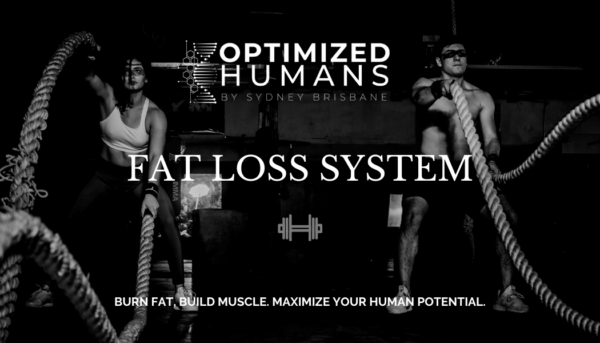
Summer is the perfect time to ramp up your fitness routine, take advantage of the beautiful weather, and work towards your health goals. Whether you’re looking to get in shape, stay active, or try new workouts, the Optimized Humans program offers the tools and guidance you need to maximize your summer fitness routine. Here’s how you can leverage the personalized workouts and features available in the Optimized Humans app to stay fit and motivated all summer long.
Personalized Workouts Tailored to Your Goals
One of the standout features of the Optimized Humans program is the ability to create personalized workout plans tailored to your individual goals. Whether you’re aiming to lose weight, build muscle, improve endurance, or simply maintain your current fitness level, the app offers a variety of workouts designed to meet your specific needs.
1. Customizable Plans: The app allows you to set your fitness goals and preferences, creating a workout plan that fits your schedule and interests. Whether you prefer strength training, cardio, HIIT, or a mix of everything, Optimized Humans has you covered.
2. Adaptive Workouts: The app adjusts your workout intensity based on your progress, ensuring you are continually challenged and making improvements. This adaptive approach helps prevent plateaus and keeps your fitness journey exciting.
3. Variety of Exercises: With a vast library of exercises and routines, you’ll never get bored. From yoga and Pilates to high-intensity interval training and weightlifting, the app offers something for everyone, catering to all fitness levels and interests.
Outdoor and Home Workouts
Summer is the ideal time to take your workouts outdoors. Optimized Humans provides a range of outdoor workout options that can be easily integrated into your fitness routine.
1. Outdoor Fitness Routines: The app features guided outdoor workouts such as running, cycling, and bodyweight exercises that can be performed in parks, beaches, or your backyard. Enjoy the fresh air and sunshine while staying active.
2. Home Workouts: If you prefer working out at home, Optimized Humans offers numerous routines that require minimal to no equipment. These workouts are perfect for days when you want to stay indoors or if you’re traveling and don’t have access to a gym.
3. Location-Based Recommendations: The app can suggest nearby parks, trails, and outdoor fitness spots, making it easier for you to find the perfect location for your workout.
Track Your Progress and Stay Motivated
Staying motivated is key to maintaining a consistent fitness routine, and Optimized Humans provides several features to help you stay on track.
1. Progress Tracking: The app allows you to track your workouts, monitor your progress, and set new goals. Visualizing your improvements can be incredibly motivating and help you stay committed to your fitness journey.
2. Personalized Feedback: Receive real-time feedback and tips from virtual trainers based on your performance. This personalized guidance ensures you’re performing exercises correctly and efficiently.
3. Community Support: Connect with other users through the app’s community features. Share your achievements, participate in challenges, and find workout buddies to keep you motivated and accountable.
Nutrition Guidance and Meal Planning
A well-rounded fitness routine includes not only exercise but also proper nutrition. Optimized Humans offers nutritional guidance and meal planning features to complement your workouts and help you achieve your health goals.
1. Personalized Meal Plans: Based on your dietary preferences and fitness goals, the app provides customized meal plans and recipes to fuel your body with the right nutrients.
2. Nutritional Tracking: Keep track of your daily food intake, monitor your macros, and ensure you’re meeting your nutritional needs. The app makes it easy to stay on top of your diet and make healthier choices.
3. Healthy Summer Recipes: Discover delicious and nutritious summer recipes that are easy to prepare and perfect for the season. From refreshing smoothies to light salads, the app offers a variety of options to keep your diet exciting and wholesome.
Conclusion
Maximizing your summer fitness routine is effortless with the Optimized Humans program. By leveraging the personalized workouts, outdoor and home fitness options, progress tracking, and nutritional guidance, you can stay fit, motivated, and healthy all summer long. Download the Optimized Humans app today and start your journey towards a more active and fulfilling summer. Embrace the season with a renewed focus on your fitness goals and let Optimized Humans be your partner in achieving them.

June, a month dedicated to unleashing the full potential of our brainpower and igniting awareness for Alzheimer’s disease. As we embark on this journey of enlightenment and advocacy, let’s explore how we can channel our collective energy to raise awareness, support research, and empower those affected by Alzheimer’s. Join us as we delve into actionable strategies to make a difference this Alzheimer’s Awareness Month.
Raising Awareness:
Awareness is the first step towards meaningful change. Spread the word about Alzheimer’s disease and its impact on individuals, families, and communities. Share informative resources, personal stories, and advocacy initiatives on social media platforms, in your local community, and among your networks. By raising awareness, we can shine a light on Alzheimer’s and inspire others to join the fight.
Supporting Research:
Research is the cornerstone of progress in the fight against Alzheimer’s. Get involved in fundraising events, volunteer opportunities, and advocacy campaigns to support organizations dedicated to Alzheimer’s research. Your contributions can fund groundbreaking studies, clinical trials, and innovative treatments that bring us closer to a world without Alzheimer’s.
Empowering Those Affected:
Alzheimer’s affects millions of individuals and their loved ones worldwide. Show your support by offering compassion, understanding, and practical assistance to those living with Alzheimer’s and their caregivers. Volunteer at local memory care facilities, participate in support groups, or simply lend a listening ear to someone in need. Your kindness and empathy can make a world of difference in the lives of those affected by Alzheimer’s.
Taking Action for Change:
Action speaks louder than words. Advocate for policy changes, increased funding for Alzheimer’s research, and improved access to care and support services. Write letters to lawmakers, participate in advocacy events, and engage with advocacy organizations to amplify your voice and drive meaningful change at local, national, and global levels.
As we ignite awareness for Alzheimer’s this June, let’s unleash the full power of our brainpower to make a difference. By raising awareness, supporting research, empowering those affected, and taking action for change, we can create a future where Alzheimer’s no longer robs individuals of their memories and dignity. Together, let’s stand united in the fight against Alzheimer’s and ignite a spark of hope for generations to come.
Thank you for taking this journey with us. Hopefully this has made you more aware of the necessity of good health. If you can make an impact throughout Alzheimer’s and Brain Awareness Month and Maximize Your Human Potential!

We are in the third week battling against Alzheimer’s and cognitive decline takes center stage. In this month dedicated to raising awareness, let’s explore how we can harness the power of mind over matter to combat these formidable adversaries. Join us as we dive into effective strategies to preserve cognitive function and champion brain health.
Navigating Alzheimer’s:
Alzheimer’s disease poses a significant challenge to individuals and communities worldwide. However, armed with knowledge and determination, we can navigate this journey with resilience. Explore treatment options such as cognitive enhancers and lifestyle interventions to manage symptoms and enhance quality of life. Additionally, participate in clinical trials to contribute to the advancement of Alzheimer’s research and potential breakthroughs.
Fueling Brain Resilience:
Just as a car needs fuel to run smoothly, our brains require nourishment to function optimally. Adopt a brain-healthy diet rich in nutrients like antioxidants, omega-3 fatty acids, and vitamins B and D. Incorporate foods such as fatty fish, leafy greens, nuts, and berries to support cognitive resilience and protect against age-related cognitive decline.
Empowering Early Detection:
Early detection is critical in the fight against Alzheimer’s and cognitive decline. Embrace the power of blood tests to identify biomarkers associated with brain health and cognitive function. Routine screenings for cholesterol, glucose, and inflammation levels can provide valuable insights and prompt proactive interventions to mitigate risk factors and promote brain resilience.
Insights from Genetic Profiling:
Genetic profiling offers personalized insights into individual susceptibility to Alzheimer’s disease and cognitive decline. By understanding genetic risk factors, individuals can implement targeted interventions to optimize brain health and reduce the likelihood of developing cognitive impairments. Explore lifestyle modifications, including regular exercise, stress management, and cognitive stimulation, to bolster brain resilience and support overall well-being.
Conclusion:
As we embark on June’s battle against Alzheimer’s and cognitive decline, let’s remember that mind over matter can be a powerful force for change. By navigating Alzheimer’s with resilience, fueling brain resilience with a nutrient-rich diet, empowering early detection through blood tests, and gaining insights from genetic profiling, we can tilt the odds in favor of cognitive vitality. Together, let’s embrace the challenge and pave the way for a future where cognitive health flourishes.
Stay tuned for our last actionable insights and tips throughout Alzheimer’s and Brain Awareness Month!
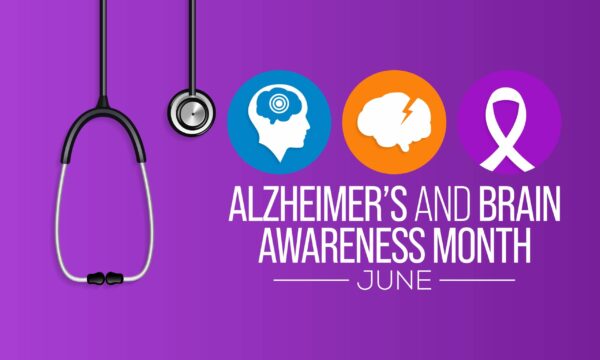
In the midst of June’s fervor for Alzheimer’s awareness, it’s time to recognize that memory matters. This month serves as a rallying cry to join the movement for brain health and take proactive steps to safeguard cognitive function. Let’s delve into practical strategies to champion brain health and honor the importance of memory in our lives.
Prioritizing Brain Health:
Maintaining brain health is crucial for preserving cognitive function and warding off conditions like Alzheimer’s disease. Engage in activities that stimulate the mind, such as puzzles, reading, and learning new skills. Physical exercise is also essential, as it enhances blood flow to the brain and promotes the growth of new brain cells. Make regular exercise a cornerstone of your routine to support long-term brain health.
Nutritional Support for the Brain:
Nutrition plays a pivotal role in brain health. Adopt a brain-boosting diet rich in fruits, vegetables, whole grains, and lean proteins. Incorporate foods high in antioxidants, such as berries, nuts, and leafy greens, to combat oxidative stress and protect brain cells from damage. Additionally, consider supplements like vitamin D and magnesium, which have been linked to improved cognitive function and mood regulation.
Harnessing the Power of Blood Tests:
Blood tests offer a window into our brain health, providing valuable insights for early detection and intervention. Routine blood screenings can assess cholesterol levels, blood sugar levels, and inflammatory markers, which impact brain health. Monitoring these biomarkers allows for timely intervention to mitigate risk factors and optimize brain function.
Insights from Genetic Testing:
Genetic testing empowers individuals to understand their unique risk factors for Alzheimer’s disease. By identifying genetic predispositions early on, individuals can implement personalized strategies to reduce risk and promote brain health. Embrace lifestyle modifications such as maintaining a healthy weight, managing stress, and prioritizing quality sleep to support overall well-being and cognitive vitality.
Conclusion:
As we navigate Alzheimer’s Awareness Month, let’s reaffirm that memory matters. By prioritizing brain health, embracing nutritional support, harnessing the power of blood tests, and gaining insights from genetic testing, we can champion cognitive vitality and honor the importance of memory in our lives. Together, let’s join the movement for brain health and pave the way for a brighter, more resilient future.
Stay tuned for more actionable insights and tips throughout Alzheimer’s and Brain Awareness Month!
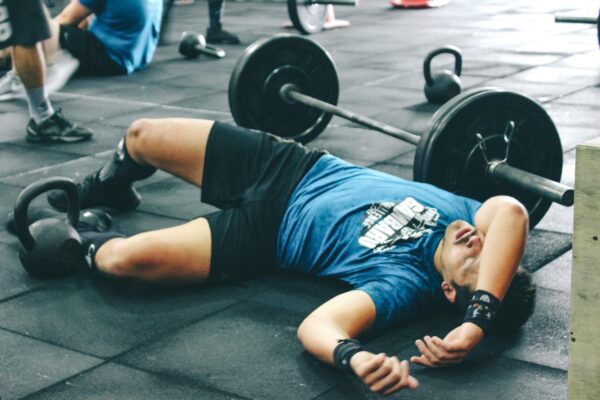
In the ever-evolving landscape of fitness, the pursuit of a healthier lifestyle has transcended the traditional realms of intense workouts. This blog delves into the transformative journey of the fitness industry, highlighting the growing importance of recovery and wellness services. Beyond the sweat-drenched workouts, a new era is emerging—one that embraces a holistic approach to well-being.
Rethinking Fitness: A Holistic Perspective
Gone are the days when fitness was synonymous with grueling workouts and sweat-soaked gym sessions. The evolving mindset of fitness enthusiasts is steering towards a holistic perspective that encompasses physical, mental, and emotional well-being. The realization that recovery is not just a post-workout necessity but a fundamental aspect of a healthy lifestyle is reshaping the fitness narrative.
The Role of Recovery in Performance Enhancement
While challenging workouts remain crucial for physical fitness, the focus is shifting towards what happens after the sweat session. Recovery is now recognized as a key element in performance enhancement. Athletes and fitness enthusiasts are exploring innovative recovery techniques to optimize their training results, reduce the risk of injuries, and promote long-term sustainability in their fitness journeys.
Personalized Recovery Plans
As the understanding of individual variability in recovery needs grows, the fitness industry is moving towards personalized recovery plans. Tailoring recovery strategies to individual preferences, body types, and fitness goals ensures a more targeted and effective approach. From customized recovery nutrition plans to specific recovery modalities, the emphasis is on providing personalized solutions for each individual.
Integration of Technology in Recovery
Technology is playing a significant role in revolutionizing the recovery aspect of fitness. Wearable devices, fitness apps, and smart recovery tools are empowering individuals to track their recovery progress, monitor vital indicators, and make informed decisions about their wellness routines. This integration of technology fosters a more data-driven and efficient approach to recovery.
Recovery Beyond Physical: Mental and Emotional Well-being
The evolution of fitness now acknowledges that well-being goes beyond physical health. Mental and emotional well-being are gaining prominence as essential components of a holistic fitness journey. Practices such as meditation, mindfulness, and stress management are becoming integral to recovery routines, promoting a balanced and resilient mindset.
Holistic Wellness Centers: A Hub for Comprehensive Well-being
The rise of holistic wellness centers signifies a shift from traditional gyms to comprehensive well-being hubs. These centers offer a spectrum of services, including recovery modalities, fitness classes, mental health resources, and nutritional guidance. They provide a one-stop destination for individuals seeking a well-rounded approach to their health and fitness.
Community and Support in Holistic Fitness
The evolving fitness landscape is fostering a sense of community and support. Whether through fitness classes, online forums, or social media groups, individuals are connecting to share their experiences, challenges, and triumphs in their holistic fitness journeys. This sense of community serves as a motivational force, encouraging individuals to prioritize their well-being in a supportive environment.
Paradigms and Transcendents
The evolution of fitness is a dynamic journey that transcends the limitations of traditional workout paradigms. Embracing recovery and wellness services as integral components of a holistic fitness approach paves the way for a more sustainable and fulfilling health journey. Beyond the sweat, fitness enthusiasts are discovering the transformative power of recovery, not just for physical performance but for fostering a balanced and thriving life. The future of fitness is one that goes beyond the gym floor, incorporating recovery and wellness as pillars of a comprehensive and holistic well-being strategy.

As we peer into the not-so-distant future, the concept of fitness in the metaverse emerges as a fascinating, albeit perplexing, phenomenon. Are virtual and augmented reality (VR and AR) workouts truly the next frontier of fitness, or is this just another passing trend? The assertions about their growth in popularity in 2024 beg the question: can these immersive experiences genuinely redefine the way we approach exercise?
Immersive Fitness: A Game-Changer or a Gimmick?
The promise of a unique and immersive fitness experience is undoubtedly intriguing. The thought of donning VR headsets or engaging in AR-enhanced workouts brings a sense of novelty to the fitness realm. But, one might wonder, does the immersion translate to efficacy? Can these experiences genuinely rival the tangible benefits of traditional workouts, or are they more of a gimmick that appeals to our collective fascination with cutting-edge technology?
Accessibility for All: A True Game-Changer?
The assertion that VR and AR workouts can be accessible for people with disabilities or mobility issues raises essential questions about inclusivity in the fitness landscape. While the idea of breaking down physical barriers is commendable, one might ponder: do these technologies truly cater to the diverse needs of individuals with varying abilities? How seamless is the integration, and does it genuinely provide an inclusive fitness experience for everyone?
The Future: A Technological Triumph or Ethereal Experiment?
2024 is painted as the year when VR and AR workouts will thrive. Yet, we can’t help but question the long-term implications. Is this a lasting shift in the fitness paradigm, or are we witnessing an ethereal experiment that will fade away as swiftly as it appeared? Can virtual fitness truly replace the tangible connections forged in physical spaces like gyms and studios, or is it a supplement rather than a substitution?
In the metaverse, where the lines between reality and virtuality blur, the future of fitness appears to be both thrilling and enigmatic. As we navigate this uncharted territory, let’s question, explore, and critically assess whether the immersive promise of VR and AR workouts is a transformative leap into a new era of fitness or a fleeting mirage in the evolving landscape of wellness. Is this the dawn of a revolutionary fitness experience, or are we merely playing a captivating game within the metaverse? Only time will reveal the answers, and until then, let the questioning continue.

